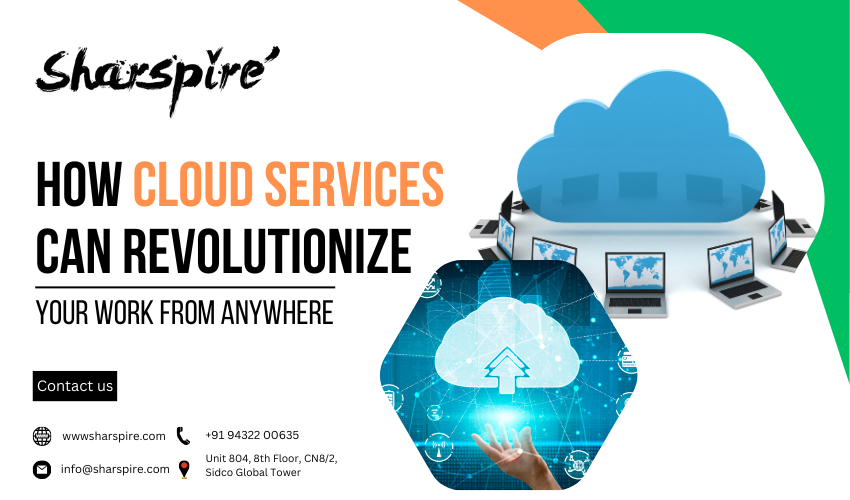How Cloud Services Can Revolutionize Your Work from Anywhere
In today's fast-paced and ever-evolving work environment, the ability to work from anywhere has become a necessity rather than a luxury. Cloud services have emerged as a game-changer in this regard, enabling businesses and individuals to collaborate, manage, and execute tasks from virtually any location with an internet connection. Here's how cloud services can revolutionize your work-from-anywhere experience.
1. Seamless Access to Data and Applications
Cloud services provide instant access to your files, applications, and data no matter where you are. Whether you're at home, in a coffee shop, or traveling across the globe, you can easily log into your cloud account and access everything you need to perform your job. This eliminates the need to carry physical storage devices or rely on a specific workstation, allowing for greater flexibility and mobility.
2. Enhanced Collaboration
Cloud platforms like Google Workspace, Microsoft 365, and others offer robust collaboration tools that allow team members to work together in real time. You can share documents, edit files simultaneously, and communicate effortlessly, ensuring that everyone stays on the same page regardless of their physical location. This level of collaboration is particularly beneficial for remote teams spread across different time zones.
3. Cost Efficiency
Investing in cloud services can significantly reduce the costs associated with traditional IT infrastructure. There's no need for expensive hardware, maintenance, or dedicated IT staff to manage servers and software. Instead, businesses can scale their cloud services according to their needs, paying only for what they use. This makes cloud services an attractive option for startups, small businesses, and even large enterprises looking to optimize their budgets.
4. Increased Security
Cloud service providers prioritize security, offering features like encryption, multi-factor authentication, and regular backups to protect your data. By storing your data in the cloud, you reduce the risk of data loss due to hardware failure or theft. Additionally, cloud providers frequently update their security measures to defend against the latest threats, giving you peace of mind that your data is well-protected.
5. Scalability and Flexibility
One of the most significant advantages of cloud services is their scalability. As your business grows, you can easily expand your cloud resources to accommodate increased demand. This flexibility allows you to quickly adapt to changing circumstances, such as a sudden increase in remote workers or a new project that requires additional storage or processing power.
6. Disaster Recovery and Business Continuity
Cloud services offer robust disaster recovery solutions that ensure your business can continue operating even in the event of a crisis. By storing your data and applications in the cloud, you can quickly recover from unexpected events like natural disasters, power outages, or cyberattacks. This ensures that your business remains resilient and minimizes downtime, no matter where your team is located.
7. Environmentally Friendly
By using cloud services, businesses can reduce their carbon footprint. Cloud providers operate large data centers that are optimized for energy efficiency, often using renewable energy sources. This is a more sustainable option compared to traditional on-premises servers, which require significant energy consumption and cooling.
Conclusion
The ability to work from anywhere is no longer a mere trend—it's a fundamental shift in how we approach work. Cloud services are at the forefront of this revolution, offering the tools, security, and flexibility needed to thrive in a remote or hybrid work environment. By embracing cloud technology, businesses and individuals can enhance productivity, reduce costs, and ensure they are prepared for the future of work.




